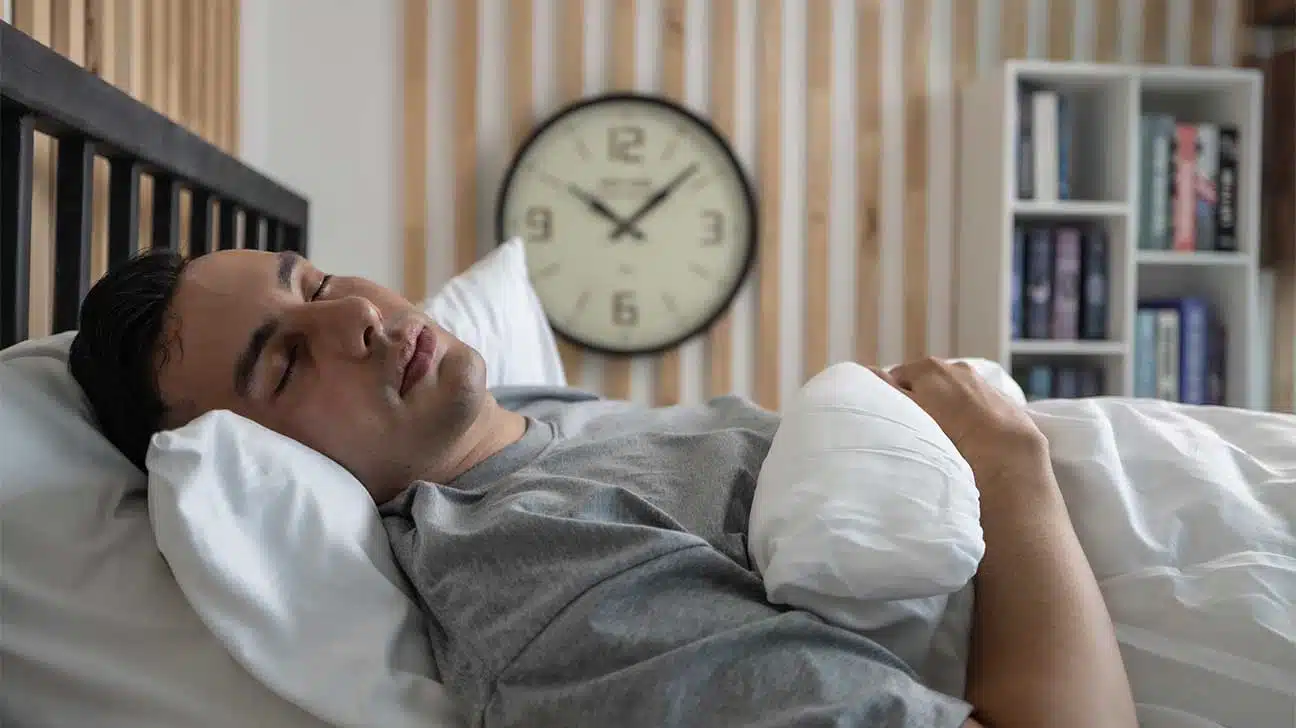
High-quality sleep provides many benefits for physical and mental health. It strengthens the mind, helps the body heal, and correlates with positive addiction care outcomes.
A recent Scripps Research study found that sleep may help people avoid relapse when recovering from opioid or opiate abuse.
Opioids have potent analgesic (pain-relieving) effects, but they are also highly addictive.
Researchers tested a new sleep-promoting drug, DORA-12, on rats with opioid dependency. The rats who received treatment appeared to have less of a need for opioid drugs.
Sleep And Substance Abuse Recovery
For years, researchers have understood that poor sleep quality can hinder drug use recovery.
Sleep problems impact recovery for several reasons. For example, people with disrupted sleep patterns experience daytime sleepiness, which can harm their overall quality of life.
They may experience symptoms such as irritability, anxiety, and difficulty focusing, all of which have the potential to trigger relapse.
High-quality sleep, however, has a positive impact on recovery. It strengthens self-control, increases resilience, and helps people maintain the energy they need to continue healing.
Quality Sleep May Prevent Opioid Relapse
The Scripps Research study found that when opioid-dependent rats slept well after receiving insomnia treatment, they were less likely to seek opioids, even after treatment stopped.
The authors of the study theorized that quality sleep reduces cravings in individuals with opioid dependence.
Cravings are some of the most prominent relapse triggers among people experiencing opioid misuse.
If improved sleep efficiency prevents these cravings, it can also improve long-term treatment outcomes by removing this significant barrier to recovery.
Effects Of Opioids On Sleep
While sleep does aid recovery, people dealing with opioid use disorder may often feel stuck in a no-win sleep scenario.
They need sleep to recover from opioid abuse, but opioid abuse itself causes sleep disturbances, interrupted sleep stages, and disrupted circadian rhythms.
Some of these disturbances include:
- respiratory depression and central sleep apnea (sleep-disordered breathing)
- disrupted rapid eye movement sleep (REM sleep)
- disrupted slow-wave sleep
While opioids may induce sleep in the short-term by causing drowsiness and reducing sleep latency, much of this resulting sleep is non-REM sleep.
Furthermore, opioid withdrawal symptoms include sleep disruption, and secondary symptoms such as rebound chronic pain can reduce sleep time.
Insomnia Treatment In Opioid Addiction Recovery
The Scripps Research study reveals that insomnia treatment may play a key role in treating chronic opioid use.
While more human research is needed, it is clear that sleep deprivation and sleep dysfunction are risk factors for drug abuse and relapse.
In the future, insomnia medication may become a more prominent type of therapy for people dealing with the use of opioids.
How Current Addiction Treatment Practices Improve Sleep
Although DORA-12 is still a new drug, people with opioid addictions may still improve their sleep outcomes by seeking substance use disorder treatment.
Currently, the most effective opioid abuse treatment involves opioid therapy, a specific form of medication-assisted treatment (MAT).
With MAT, healthcare providers prescribe opioid medications such as methadone or buprenorphine and combine medication use with behavioral therapy.
While these medications are prescription opioids, they do not cause euphoria when used appropriately under doctor supervision.
These drugs relieve the side effects of opioid withdrawal, including sleep impairment, by binding to opioid receptors.
Get Help For Addiction
Addiction is a complex mental health disorder, but it is a treatable condition.
If you or a loved one experience substance abuse, contact Addiction Resource today to discover treatment options.
Addiction Resource aims to provide only the most current, accurate information in regards to addiction and addiction treatment, which means we only reference the most credible sources available.
These include peer-reviewed journals, government entities and academic institutions, and leaders in addiction healthcare and advocacy. Learn more about how we safeguard our content by viewing our editorial policy.
- American Academy Of Sleep Medicine — Understanding The Relationship Between Sleep Deprivation And Addiction
https://sleepeducation.org/understanding-relationship-between-sleep-deprivation-addiction/ - National Institutes Of Health (NIH) — Sleep Phases And Stages
https://www.nhlbi.nih.gov/health/sleep/stages-of-sleep - National Library Of Medicine — Interactions Between Sleep Habits And Self-Control
https://www.ncbi.nlm.nih.gov/pmc/articles/PMC4426706/ - Science Blog — Insomnia Drug Helps Prevent Oxycodone Relapse
https://scienceblog.com/539550/insomnia-drug-helps-prevent-oxycodone-relapse/

